To conclude her residency at G.A.S. curator Miriam Bettin hosted the first exhibition at the G.A.S. Farm House in Ikise, designed by Papa Omotayo. The show brought together artists and designers whose work with textiles emphasises the fluid, transformative, anti-colonial, emancipatory, and queer-feminist qualities of the medium. The artists shared a dedication to tradition and at times nostalgia that is being reimagined in the context of contemporary discourses and aesthetics.
Emalohi Iruobe’s work centres around ancestral power and healing through storytelling. By using items and fabrics that belonged to her mother, the artist incorporates autobiographical elements into her sculptures and installations. ÌRÌN ÀPÈKÉ (2020 – 2022) is her latest body of work produced in a time of isolation and recovery: sewn from worn fabric, faceless dolls represent the ancestors, Òrishà. Life-sized human bodies in the finest garments, rich in ornaments, jewellery, and flowers bring blessing to the present, while playful mobiles for adults allow us to revisit a place and state of innocence.
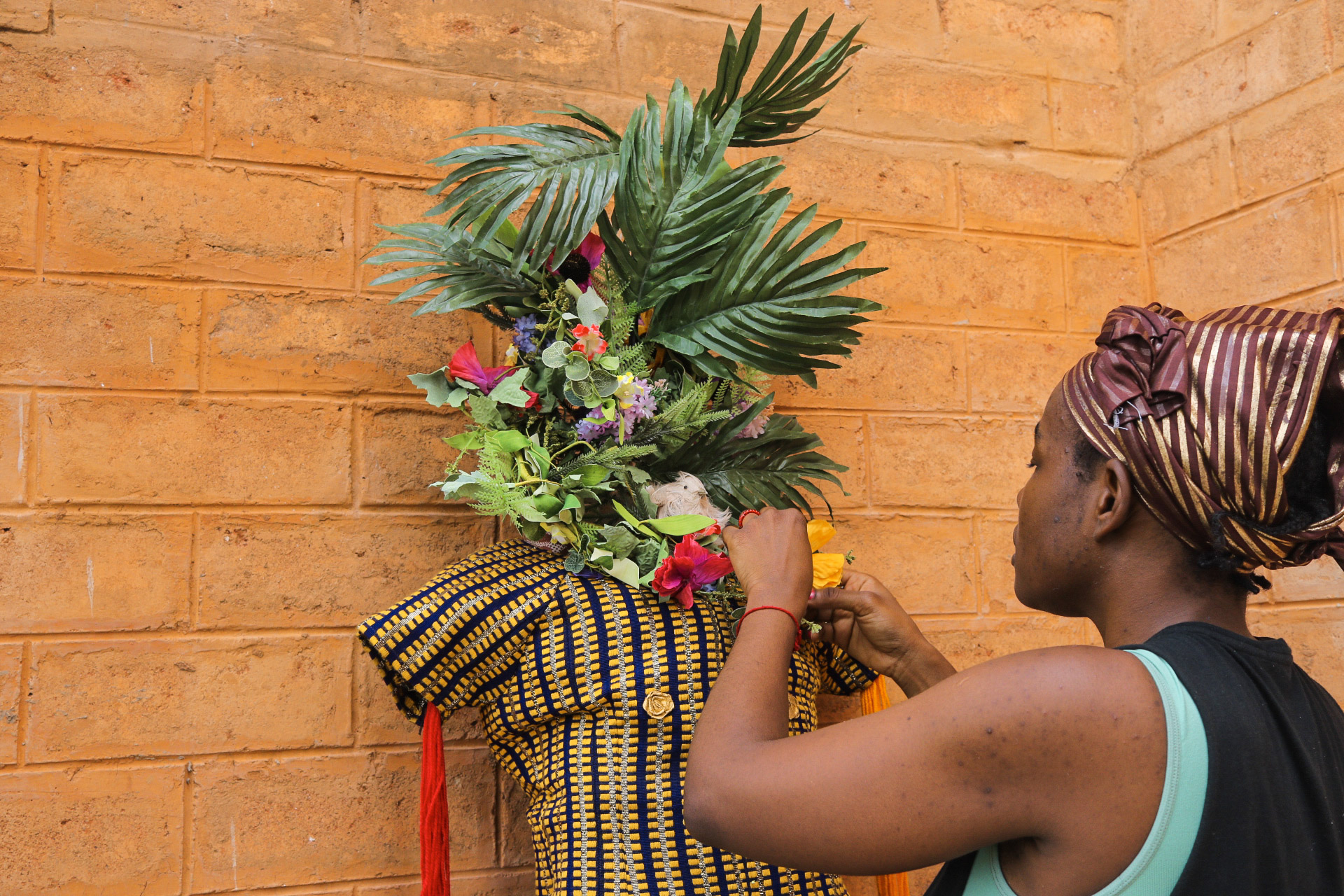
Peju Layiwola, founder of Masterartclasses, explores indigenous techniques of Àdìre making with the aim of elevating the textile beyond mere appreciation as a craft. Her work on textiles illuminates the back story of cloth, extending its meaning in ways that give value and interpretation to the multi-layers of the art, which is intertwined with other Yoruba indigenous knowledge practices. Òjé Market Day (2018 – 2019) is a patchwork of quilted textile made largely from chequered indigo dyed fabric, some showing shades of ochre, red, and yellow, reminiscent of the rusty roofs of Ibadan, echoing JP Clark’s Poem Ibadan. The work centres Òjé market in Ìbàdàn as a local yet international market known for vintage Àdìre and Aso ofi fabric. Largely occupied by women traders, the marketplace becomes a space that demonstrates the powerful economic and social status of women in African history.
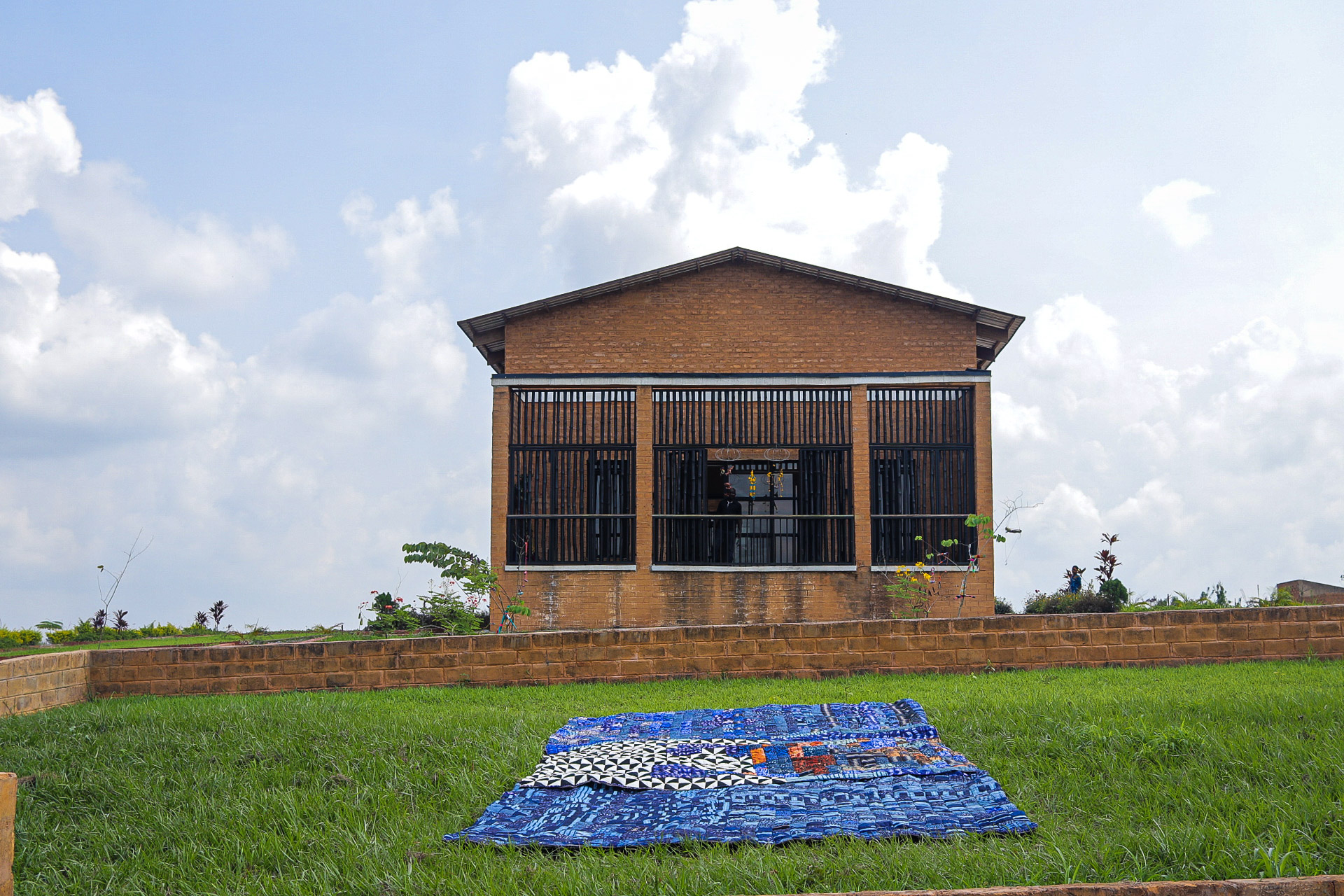
In his research-based projects, Emmanuel Ndefo explores embodiments and formats of rupture, queerness, resistance, and subversion within a performative practice past and present, thus challenging dominant narratives. In his video work Adamma (2022) Ndefo looks into the fluidity of gender experience through the traditional ritual of Igbo masquerade. By performing the Adamma himself in public space, it is not only masculinity being questioned but also the fixed notions of gender in Nigerian society.
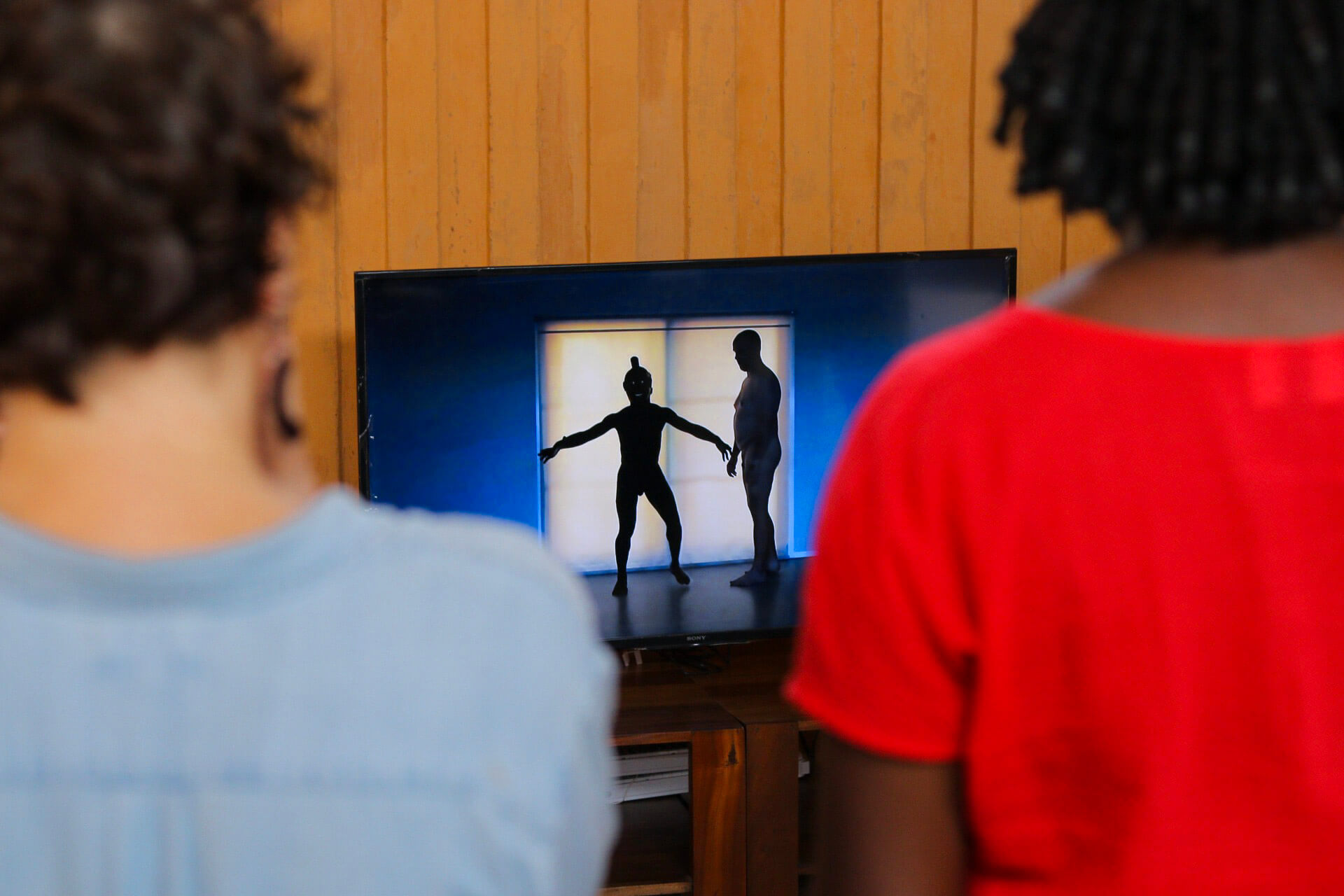
The work of Bubu Ogisi, fibre artist and Creative director of IAMISIGO, spans around the idea of how the body exists and interacts with space through time. By creating wearables and installations with unconventional materials, exaggerated textures, and ancient textiles techniques from all over the African continent, her work aims to decolonize the mind and body in relation to religion, gender, traditions, symbols, tribes, ecosystems, witchcraft, and magic. Forest of Humanity (2020) is a series of textile
works in a crochet technique developed by the artist from recycled fishing net and wool sourced from Kano. Archetypes of opposed human facial expressions (happy / sad, laughing / crying) show different emotions (joy, enlightenment, sorrow, disappointment, resignation) of ancestral souls and embodied spirits – entities on earth, in heaven, and in hell.
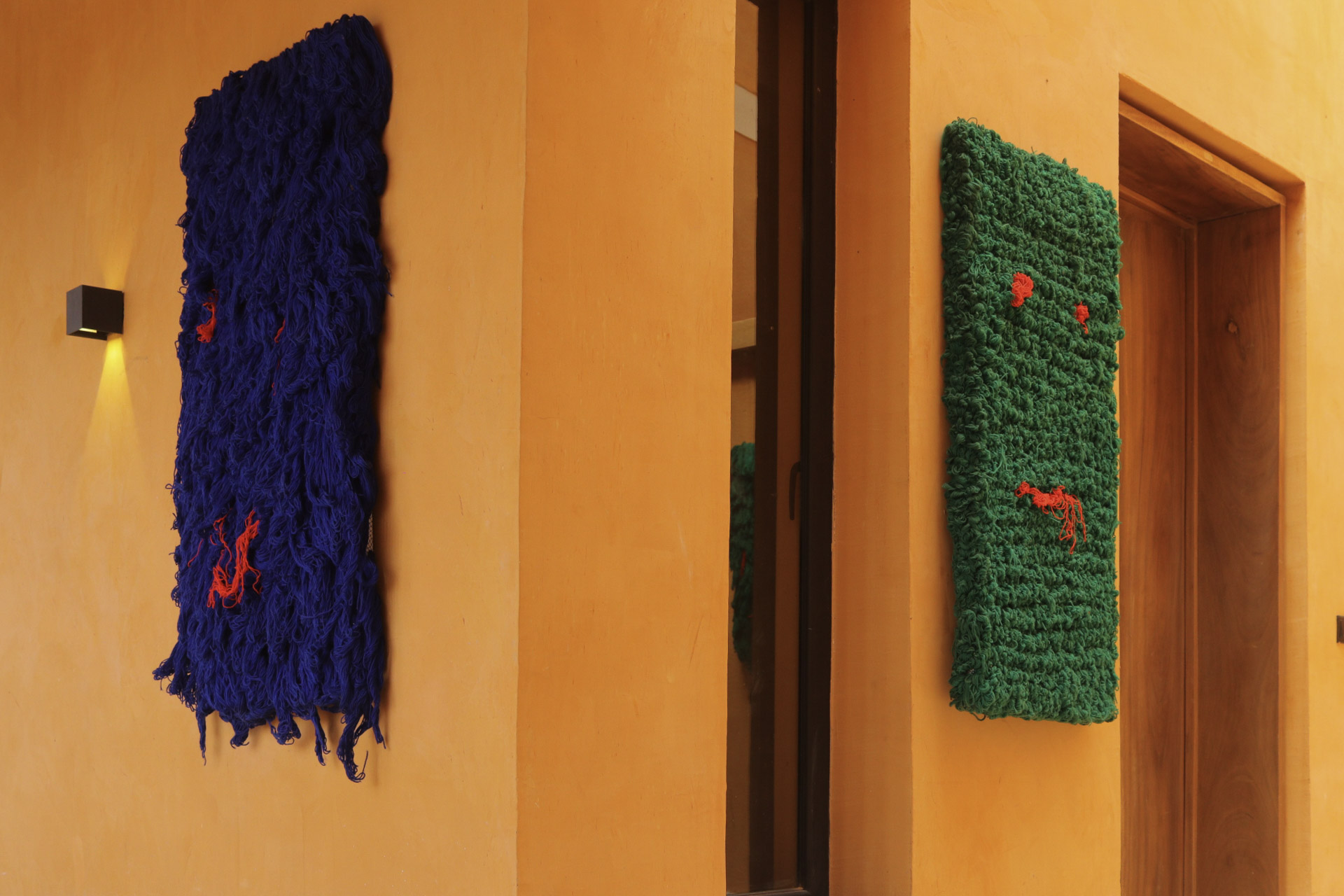
In Nengi Omuku’s works human beings and other entities come to rest. In her paintings on the wild silk cloth sanyan, the artist creates allegorical places of joy, peace, and healing. Soliloquy (2022) shows two faceless figures that mirror, touch, and embrace each other in a deep inner dialogue. The space is undefined and seems to hold all possibilities of being. Instead of landscapes, Omuku focusses on the journey of identities and relations (with the self and others), and the ways in which the body needs to adapt in order to belong.
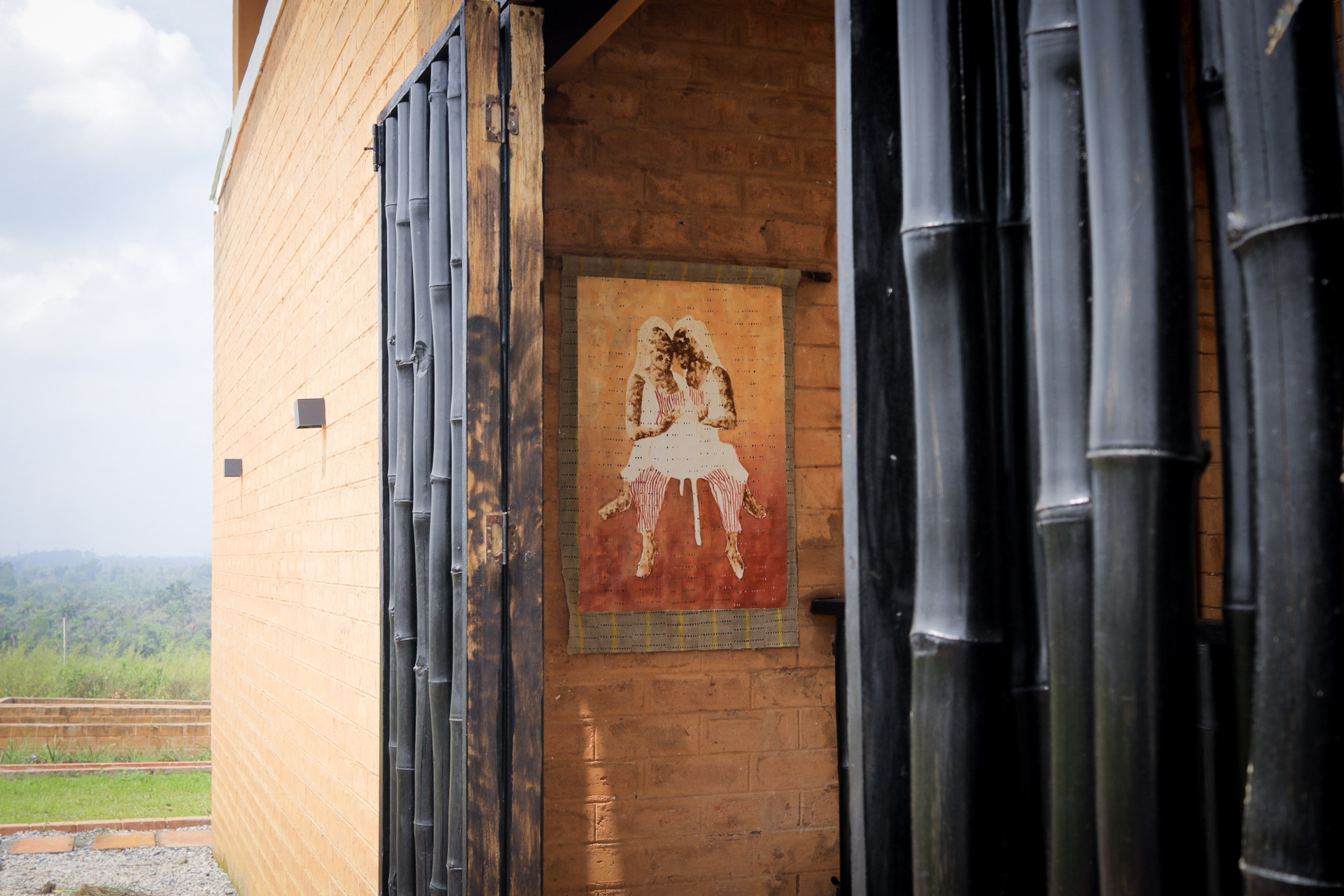
Adeju Thompson, founder of Lagos Space Programme, strives to highlight an alternative African narrative by drawing from hidden histories and mythologies in Yorùbá tradition, culture, language, textile, and cosmology. As much as the artist and designer is committed to nostalgia, their narratives are interwoven with today’s codes and discourses. Besides knitwear, Thompson reimagines the heritage textile Àdìre as “post-adire”: a medium and craft that has the power to tell stories and therefore write a queer history and present.
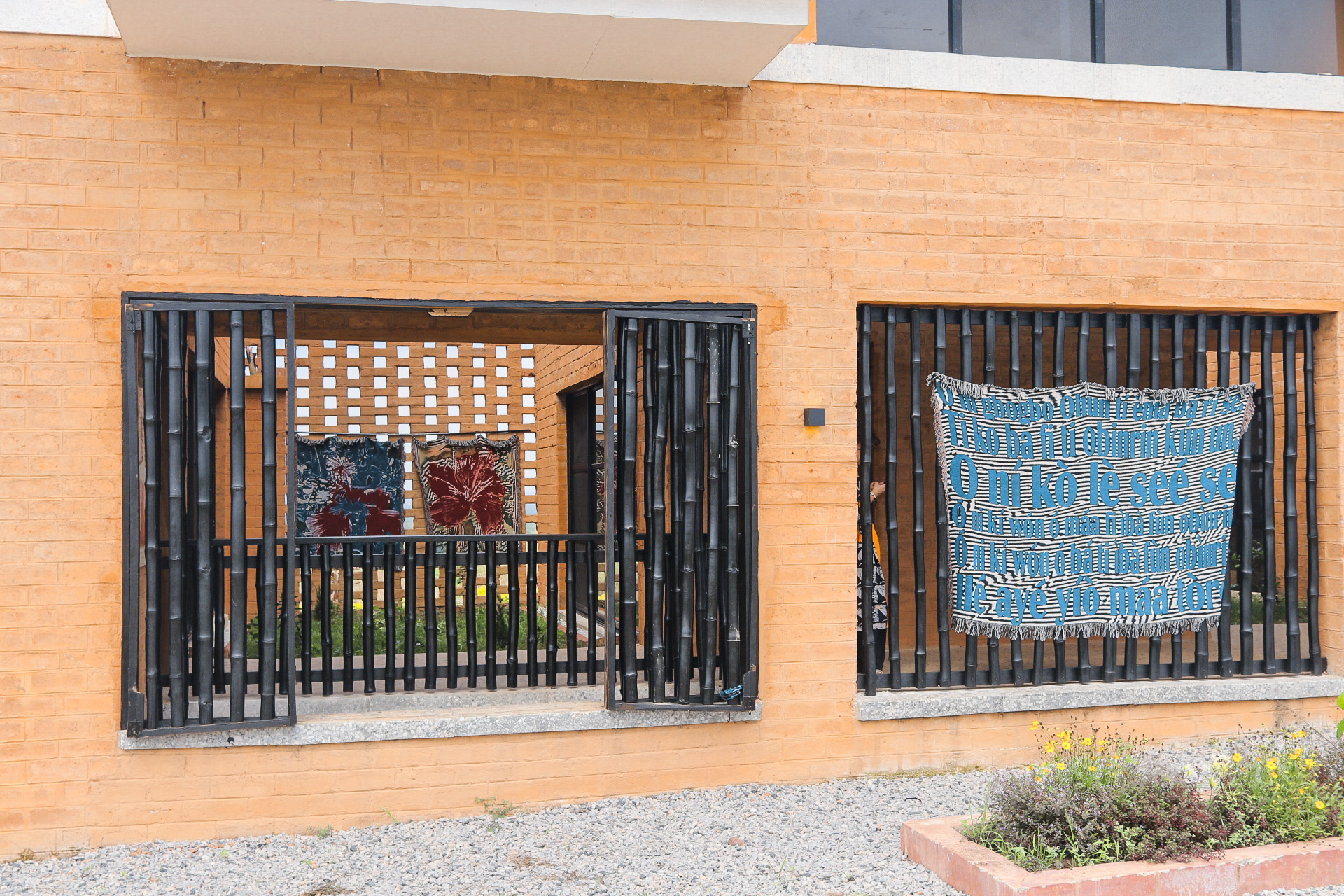
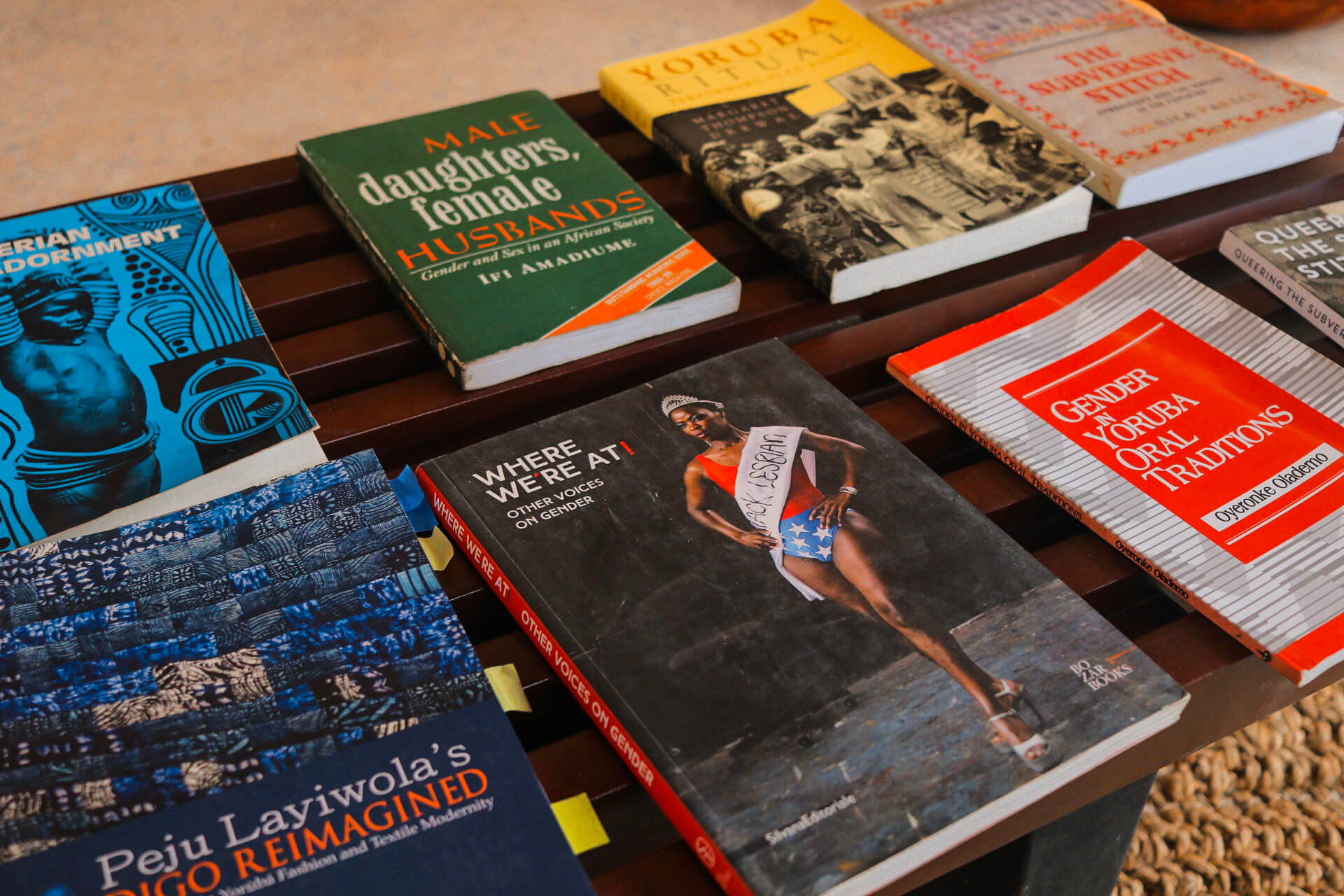
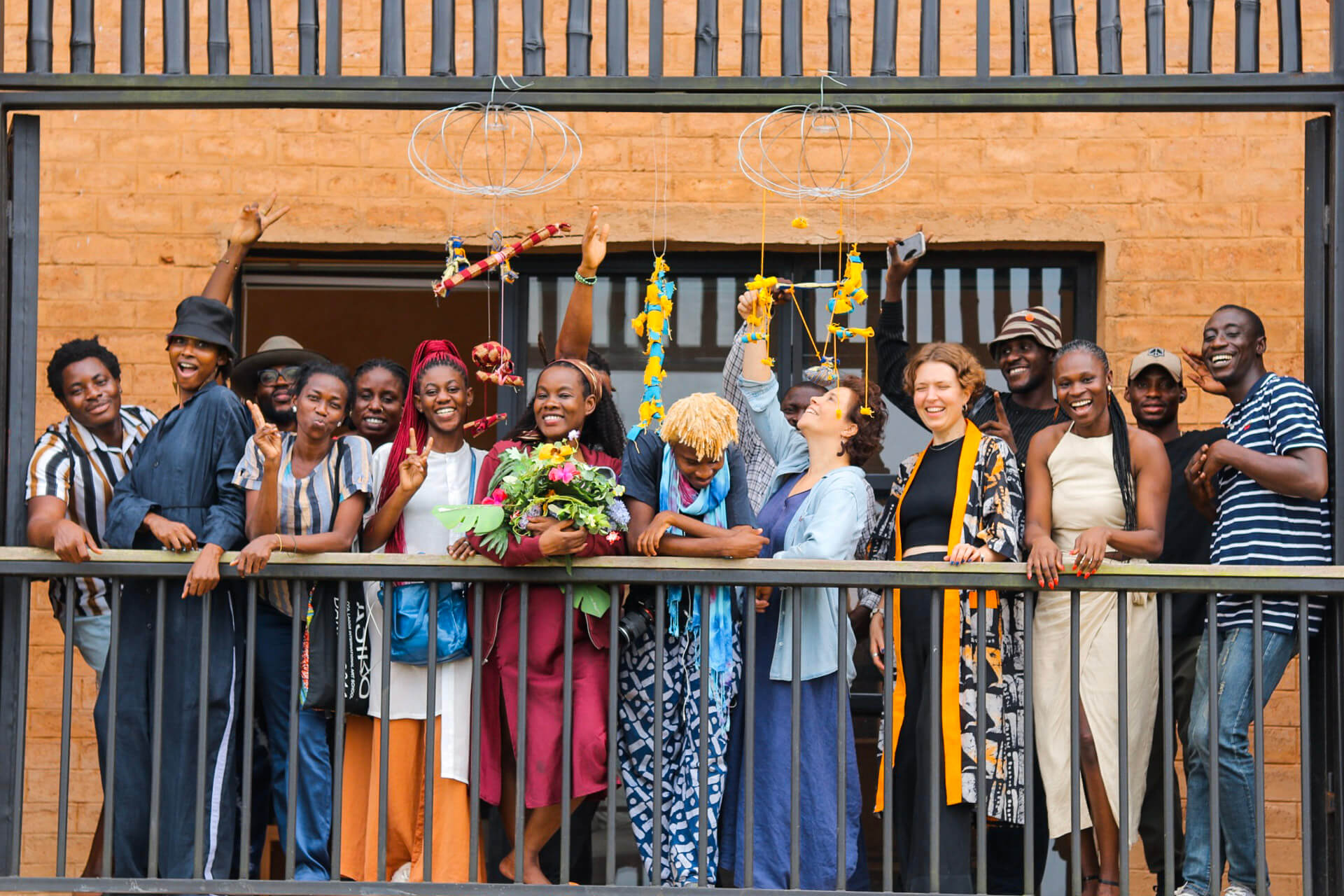
EXHIBITION DETAILS
Aso là ´nkí, kí a tó ki ènìyàn – We greet the cloth before we greet its wearer
A group exhibition with Emalohi Iruobe, Peju Layiwola, Emmanuel Ndefo, Bubu Ogisi, Nengi Omuku, Adeju Thompson curated by Miriam Bettin
Date: Thursday, December 1, 2022
Location: G.A.S. Farm House, Ikise
Exhibition film production generously supported by A Whitespace Creative Agency. Filmed and edited by Anthony Dike.